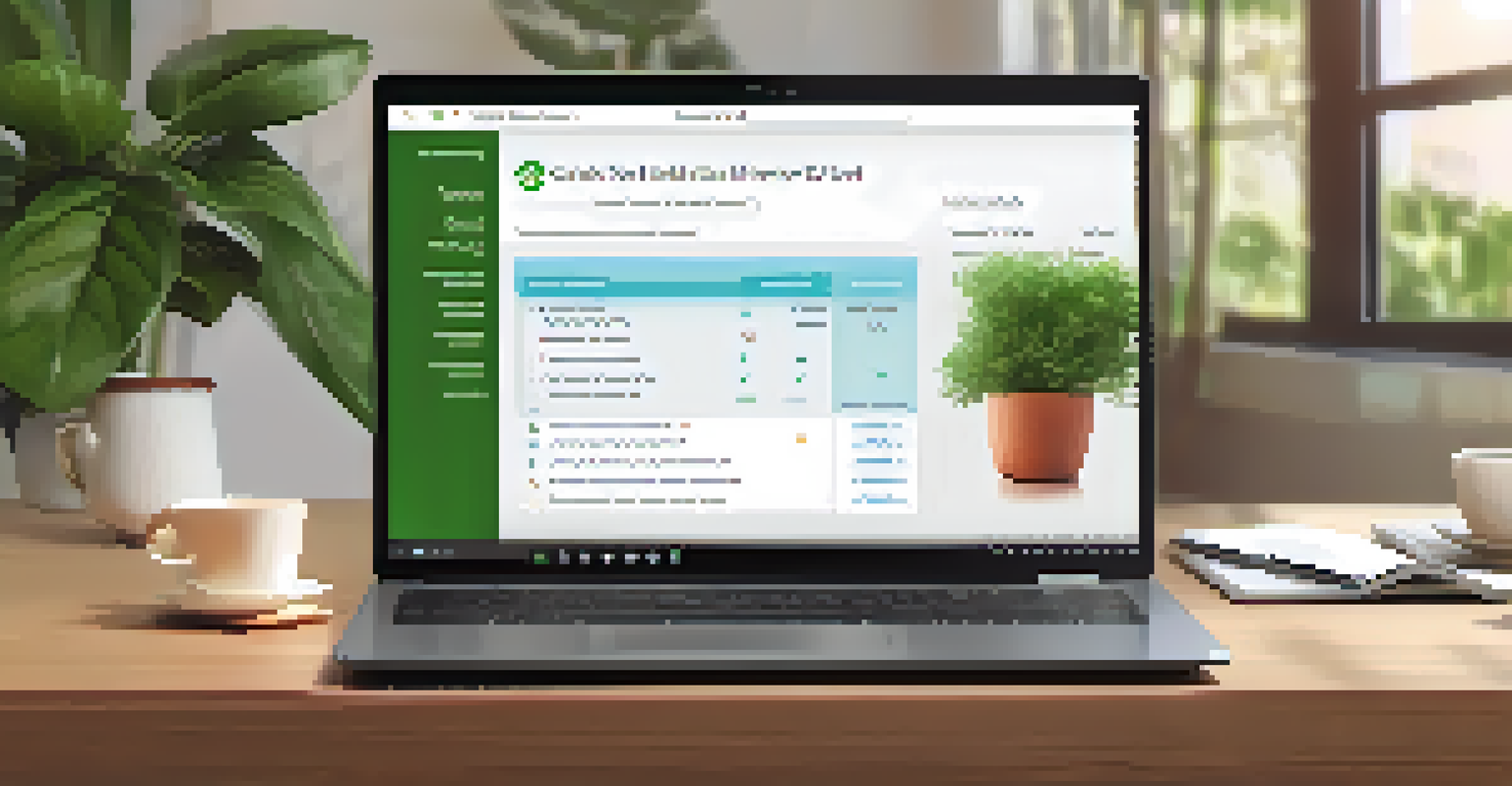Benefits of Digital Health Records for Healthcare Providers

Streamlined Patient Data Management
Digital health records simplify the management of patient data by consolidating information in one accessible location. This not only saves time but also reduces the risk of errors that can occur with paper records. When healthcare providers can quickly access a patient’s medical history, it allows for more informed decision-making during consultations.
The greatest wealth is health.
Imagine a busy doctor’s office where staff are flipping through stacks of paper to find a patient’s chart. With digital records, that same staff can retrieve the necessary information in seconds, dramatically improving the workflow. This efficiency can lead to shorter wait times for patients and a more organized practice overall.
Moreover, digital records can be updated in real-time, ensuring all healthcare providers involved in a patient's care are on the same page. This constant accessibility means that even if a patient visits a different specialist within the same network, their information is readily available, fostering better coordination and continuity of care.
Enhanced Communication Among Providers
Digital health records facilitate seamless communication among healthcare providers. With features such as shared access and messaging systems, doctors and nurses can easily collaborate on patient care. This is particularly beneficial in complex cases where multiple specialists are involved.

For example, a primary care physician can share a patient’s digital file with a cardiologist with just a few clicks, allowing for immediate input and collaboration. This not only saves time but ensures that all providers are working with the same information, reducing the chances of miscommunication.
Additionally, digital records often include integrated tools for referrals and appointment scheduling. This streamlined communication network enhances patient care, as providers can quickly coordinate next steps without unnecessary delays.
Improved Patient Safety and Care Quality
One of the most significant benefits of digital health records is the improvement in patient safety. Electronic systems can alert providers to potential issues, such as allergies or medication interactions, that may not be immediately obvious in a paper record. This proactive approach can prevent potentially dangerous situations.
In healthcare, it is not just about the technology but about the relationships and the care we provide.
Consider a scenario where a patient is prescribed a new medication. A digital health record can automatically flag any existing allergies or contraindications, allowing the provider to make a safer choice. This not only protects the patient but also enhances the overall quality of care.
Furthermore, digital records make it easier to track patient outcomes over time. This data can be analyzed to identify trends and improve treatment strategies, ultimately leading to better health outcomes for patients.
Greater Efficiency in Billing and Insurance Claims
Digital health records streamline the billing process, making it more efficient for healthcare providers. Automated billing systems can reduce clerical errors, ensuring that claims are processed accurately and quickly. This efficiency translates to faster payments and fewer billing disputes.
For instance, when a patient receives care, the relevant information can be directly input into the billing system without the need for double entry. This not only saves time but also minimizes frustration for both staff and patients, who often want to resolve financial matters promptly.
Moreover, digital records can help providers track outstanding claims and manage accounts receivable more effectively. This oversight is essential for maintaining a healthy cash flow in a practice, allowing providers to focus more on patient care rather than administrative tasks.
Easier Access to Health Information for Patients
Digital health records empower patients by providing them easier access to their health information. Many systems now offer patient portals where individuals can view their medical history, test results, and treatment plans. This transparency fosters a sense of involvement in their own care.
Imagine a patient who has ongoing health concerns. With access to their digital records, they can monitor their progress and communicate more effectively with their healthcare providers. This active participation can lead to better adherence to treatment plans and improved health outcomes.
Furthermore, having access to their health information can also help patients prepare for appointments, ask informed questions, and make educated decisions about their care. This level of engagement is crucial in today’s healthcare landscape, where patient-centered care is becoming the norm.
Data Analytics for Improved Healthcare Insights
Digital health records enable the collection and analysis of vast amounts of data, providing valuable insights into healthcare practices. By examining trends, providers can identify areas for improvement and implement evidence-based practices that enhance patient care. This data-driven approach is transforming how healthcare is delivered.
For example, a hospital can analyze readmission rates for certain conditions and identify patterns that might indicate a need for better post-discharge protocols. This kind of analysis not only improves care but can also reduce costs associated with unnecessary readmissions.
Moreover, aggregated data from digital health records can contribute to larger studies and research, advancing the medical field as a whole. By contributing to a broader understanding of health trends, providers can play a role in shaping future healthcare practices.
Regulatory Compliance and Enhanced Security
Digital health records help healthcare providers stay compliant with various regulations, such as HIPAA, which mandates the protection of patient information. Electronic systems often include built-in security features like encryption and access controls to safeguard sensitive data. This not only protects patients but also shields providers from potential legal issues.
For instance, by using digital records, practices can ensure that only authorized personnel have access to patient information. This level of security is much harder to maintain with paper records, where files can be easily misplaced or accessed by unauthorized individuals.

Additionally, digital records allow for better audit trails, making it easier to track who accessed patient data and when. This transparency enhances accountability and can help practices demonstrate compliance during audits, reducing the stress associated with regulatory oversight.
Cost Savings Through Digital Transformation
Transitioning to digital health records can lead to significant cost savings for healthcare providers. By reducing the need for physical storage space and minimizing paper usage, practices can lower overhead costs. This financial relief can be redirected towards patient care or improving facility services.
Consider the expenses associated with maintaining a paper-based system, such as printing, filing, and storing documents. By going digital, providers can eliminate many of these costs and streamline their operations, leading to greater efficiency.
Furthermore, the time saved by automating administrative tasks can allow staff to focus on patient care rather than paperwork. This not only improves the quality of service but also enhances job satisfaction among healthcare providers, creating a more positive work environment.